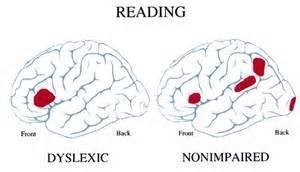Dyslexia Support and Advice for Parents in the UK
What is Dyslexia?
Dyslexia is a term many of us have heard of. When we hear it we think of people who struggle with reading and writing or confuse "b" and "d". But how many people know much about this condition which affects 10-15% of the UK population?
The British Dyslexic Association defines dyslexia as:
“Dyslexia is a specific learning difficulty which mainly affects the development of literacy and language-related skills. It is likely to be present at birth and to be lifelong in its effects. It is characterised by difficulties with phonological processing, rapid naming, working memory, processing speed, and the automatic development of skills that may not match up to an individual’s other cognitive abilities”.
Dyslexia is sometimes called word blindness and has been documented for over 100 years. Did you know that the first recorded case of dyslexia appeared in the British Medical Journal in 1896? Percy F was a 14-year-old who couldn't read and wrote his name as Percy but could multiply 749 by 887 quickly and correctly.

Did you know that Richard Branson, Albert Einstein, Walt Disney, and Agatha Christie were all dyslexic? Dyslexics tend to be very creative and often entrepreneurial.
What should parents look out for?
- Delayed speech
- Difficulties in converting speech sounds into written text, resulting in their reading and writing being below that expected for their IQ.
- Confusion over the letters b and d after the age of 8
- Difficulty in recalling times tables or sequences such as days of the week and months of the year.
- Poor organisational skills
- Difficulty copying text which is increased when copying from a board
- Slow reading speed
- Poor sight words
- Adding in or missing out letters when reading or spelling
- Guessing words
- Reversal of words when reading or spelling (on/no, was/saw)
- Difficulty mastering new skills
- Difficulty transferring thoughts to paper
This is not an exhaustive list but good signs to watch out for.
In the modern world reading, writing, and maths are given high status. Employment opportunities depend on mastery of these skills. Understandably, parents can become worried when their child is not achieving in line with their peer group.
Research into Dyslexia

There has been much research into the causes of dyslexia and this is ongoing. It is believed that dyslexia is usually genetic and inherited. A dyslexic’s brain works differently from the brain of a non-dyslexic. There is less activity in the language areas of the brain during reading and writing.
If I am concerned about my child what can I do?
1) Talk to your child’s class teacher, Special Educational Needs Teacher (SENCO)
2) Request a dyslexia screening test. This is especially important if there is a family history of these difficulties
3) Follow a systematic multi-sensory programme such as "Alpha to Omega" or "Toe by toe"
4) Find a qualified specialist to assist
Teaching Methods
A dyslexic student will need a multi-sensory approach to learning reading and spelling which will need to be very structured to fill in the phonic gaps.
Multi-sensory
Seeing, hearing, saying, writing, feeling, and making. The student will need to engage as many senses as possible to stimulate the language areas of their brain.
Handwriting
It is beneficial for the dyslexic to join their handwriting as this helps them to remember the shapes of words.
Using the sense of touch
- Use sandpaper letters with a blindfold. The removal of the sense of sight will heighten the sense of touch.
- Using playdough or sand and drawing in the air or on the child’s back will increase the number of senses a child uses.
These activities will stimulate the language areas of the brain.
A Neuro-Science Solution
Introducing Cellfield
For some children, a more intense solution is needed. When the traditional approach fails and a student hits a brick wall a more drastic solution is required. As dyslexics underuse certain parts of their brain and overuse others.
It may be necessary to use neuroscience research to treat the underlying cause. Cellfield is an innovative, proven, sustainable programme for dyslexia and is available in the UK. Cellfield takes a multi-disciplinary approach, building on neuroscience research to stimulate the auditory and visual parts of the brain and make the messaging between these areas more precise.
To learn more about how Cellfield could help your child please click here:

